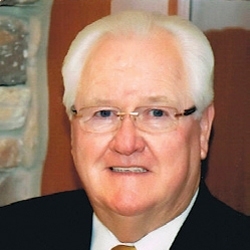Erik Goldman, Editor of Holistic Primary Care-News for Health & Healing05.01.12
As the U.S. Supreme Court deliberates on the constitutionality of a mandate to purchase health insurance—and by extension, the future of the Obama Administration’s “Patient Protection and Affordable Care Act”—we’ve been treated to a devil’s choir of strident opinion from across the political spectrum.
Check in on any major news outlet and you’ll find strong but extremely divergent attitudes toward the Administration’s plan: some people view it as a direct assault on everything that makes America great; others see it as a welcome corrective for most—if not all—that is wrong with healthcare in this country. Some see totalitarianism, others see benevolence.
All of this got me wondering how clinicians feel about the Affordable Care Act (ACA), particularly holistically-minded physicians. After all, it’s the doctors, nurses and other practitioners who will be toiling away under whatever sort of system—or lack thereof—emerges out of the political/economic fray.
So we asked a few hundred holistic and integrative practitioners to sound off on the constitutionality of the individual mandate, the likelihood that the plan will withstand the Court’s grilling, and what, if anything, would be a better option for reforming healthcare in this country.
The answers—more measured and well-reasoned than a lot of the TV polemics—reflect many of the same themes and concerns heard from the pundits and the general public, but with a few very interesting twists. For one, many of the practitioners who responded to our straw poll would get behind the one reform option never put on the table in Washington: a straight-up, European-style single payer system.
Little Love for Insurance
Two years ago, when the Obama reform plan was first unveiled, many in integrative medicine thought leaders were encouraged by the plan’s focus on prevention, its strong support of the “patient centered medical home” model and its emphasis on comprehensive care coordination. Few now believe that this will engender a large scale movement toward truly holistic approaches.
Many respondents to our informal survey believe the plan fails to address the main drivers of the country’s health crisis, and does little to foster a meaningful shift toward holistic care. Further, since many holistic/integrative clinicians by choice or necessity practice outside of insurance they are leery of any reform plan that keeps insurance companies in the Catbird seat.
Few of the respondents expect the reform plan to survive the Supreme Court’s ruling, expected in June. In fact, 91% predict that the ACA will not stand, because the Court will deem the insurance mandate unconstitutional.
The mandate—which would require all citizens to purchase healthcare insurance, obtain coverage through their employers or be enrolled in one of the federal programs (Medicare, Medicaid, TriCare)—is central to the reform plan. The Administration has not forwarded a Plan B, should the Court rule against it.
The more interesting question is whether the mandate—and by extension the reform plan itself—should stand. On this matter, 64% of our respondents say “Nay!”
“I disagree with ObamaCare for the simple reason that it basically mandates conventional health coverage. As long as we are a society that produces illness and pays for treating symptoms, we cannot solve the crisis,” said Carol Bowman, MD, an internist, board certified in integrative holistic medicine.
“Regulation of the food and chemical industries that produce sickness, and incentivizing individuals, companies and insurance coverage for healthy living will make more of an impact than just forcing more people to buy into a system that is severely broken and fueled by special interests,” said Dr. Bowman, who practices in Bel Air, MD.
Others were more blunt in their distaste for the mandate. “Just like the bail-out was allegedly going to assist citizens, this healthcare initiative will only help corporate America,” says Cary Silberman, a homeopath at the Hensley Headache Clinic, San Jose, CA.
Several other common themes emerged from respondents’ comments:
• Morality and constitutionality aside, a mandate forcing people to purchase insurance economically questionable.
• Being against the Obama Administration’s plan is not synonymous with being against healthcare reform.
• Elimination of 3rd party payors and restoration of direct relationships between patients and practitioners is the true corrective for the system.
• Holistic and integrative modalities have tremendous potential for cost savings and for improving health outcomes—if only they were given a fair chance.
• Partisan politics and the influence of corporate special interests have corrupted the process, making meaningful large-scale reform difficult, if not impossible.
Abandon the Mandate
Though most respondents have serious reservations about the ACA, most do see a pressing need for major reform of healthcare in this country.
Some, like Lonna Larsh, MD, a holistic family physician in Santa Cruz, CA, contend that the ACA contains important elements that should be preserved. “I do support parts, like requiring insurance companies to allow parents to buy insurance for older children, and requiring them to cover those with pre-existing conditions.” But ultimately, the individual mandate left her cold. “It is a gift to the insurance companies.”
David Blyweiss, MD, a functional medicine practitioner in Boca Raton, FL, aligns with the view that a mandate to buy insurance is simply unconstitutional. “The idea that someone…would be mandated to purchase a product is, at the least absurd, likely unconstitutional, and should not be the law of the land. This is not the answer to making our population healthier. It only makes the insurance companies healthier.”
Like many others, Dr. Blyweiss believes the real game-changer will be education: “Educating the population to make better food choices, teaching whole system detoxifying methods, stress reduction techniques, immune strengthening, digestive rebalancing, and other functional medicine concepts are the ways to deal with the ills we are seeing …which can only get worse if we stay on the same road. Healthcare must face the truth that the paradigms successfully used for acute care do not meet the needs of the majority of health issues we see.”
Not Far Enough
Others believe that the main flaw with the Obama administration plan is that it didn’t go far enough.
Hyla Cass, MD, a holistic psychiatrist in Pacific Palisades, CA, believes a full-on single payer system would go further toward increasing access, improving outcomes and saving money than the ACA’s hybrid insurance-based system. Born and raised in Toronto, she speaks from experience.
“We should have free, single payer, government-funded healthcare like Canada and other western countries. It may have it’s problems but we have far worse problems here in the U.S., with people becoming destitute as a result of catastrophic illness, insured or not. The profits in medical care are ridiculous. Healthcare should be like education and other public services.”
However, she acknowledged that the question of how integrative, holistic and functional medicine would fit into a single-payer plan is not at all clear. For the most part, the national health systems in Canada and in European countries have been slow to embrace modalities outside conventional allopathic medicine.
Jonathan Murphy, MD, of the Arizona Center for Advanced Medicine in Scottsdale, would also prefer a single payer system, though he thinks this is very unlikely in the U.S.
“I do believe a developed nation like the U.S. can have national healthcare coverage, but at this point in time there are too many shortsighted politicians and bureaucrats, and we will have to wait until things become even more difficult before real reform will happen. The potential for savings just in administrative costs alone says we should have a single payer. If there is to be a mandate, it won’t work as well through many different insurance pools as it would through a single risk pool.”
But he stressed that how we finance healthcare should be secondary to the question of how we engender health. “I can see many simple ways of saving money, but they require folks to take better care of their health through lifestyle and diet. With all of the ads for great tasting processed foods, these simple ways have an uphill climb to be accepted.”
The ACA certainly has supporters within the holistic/integrative community. Sanford Levy, MD, a holistic internist in Buffalo, NY, and member of the Board of Directors of the American Board of Integrative Holistic Medicine, believes the reform plan will withstand its Supreme Court scorching—and he thinks it should.
“(The mandate) is essential to spread risk. If individuals choose not to insure, as is currently an option, and then they have a catastrophic illness, society ends up absorbing the cost, and/or the individual must go through personal bankruptcy. All other 1st world countries have either national insurance or an individual mandate.”
Tara Zandvliet, MD, a holistic physician in San Diego, CA, says, “I think the Affordable Care act has a lot of good things in it if we are trying to maintain an insurance based system and do the least disruption. But I think mandated insurance will be found unconstitutional because it is demanding we partake as consumers in a for-profit (private) market. I think we could make the case for providing care for all Americans, just as we provide fire and rescue and 911 services, even if people don’t want them, but that would have to be through a tax system, which some Americans are wholly against.”
She added that she supports “ObamaCare” and hopes it is upheld. “It seems to be the least disruptive of the alternatives, as it does not dismantle the entire insurance system and put those people out of work. It seems the only way for an insurance-based payment system to work—many healthy people paying in and distributing the risk for the ill.” That said, she’s none too hopeful that the mandate will survive the Supreme Court.
Bill Manahan, MD, professor emeritus of Family Medicine & Community Health at the University of Minnesota Medical School, believes the Obama administration’s reform plan does have merit, but he’s not optimistic about its future. “I suspect that the vote in the Court will be 5 to 4 against it. If it is defeated, I hope it will force the administration to move toward a single-payer system.
(3rd) Party’s Over
Dr. Manahan holds that without major societal changes no healthcare policy will make much difference in the overall health of the nation.
“The real problem is with our entire way of life, which is wasteful, arrogant, disconnected from nature and spirit, and run by corporations that believe their primary obligation is to make money for shareholders. No matter what we do with healthcare payment systems, so long as allopathic medicine dominates, we in the U.S. will remain in big trouble.”
William “B.J.” Lawson, MD, a physician, entrepreneur and 2010 Republican candidate for Congress, believes healthcare could right itself if 3rd party interests—both corporate and federal—were removed from the healing equation.
“What is healthcare? At its most basic, healthcare is a patient and practitioner together in the same room, seeking to treat symptoms, reverse disease or promote health.”
A libertarian conservative with a strong anti-corporate streak, Dr. Lawson contends that, “the government forcing individuals to purchase a product is well outside of its constitutional jurisdiction and a perversion of the commerce clause. The intent behind the clause was to create a free trade zone among the States—so that North Carolina would not be erecting tariffs against Massachusetts, for example. The intent was never for the federal government to regulate commerce and ultimately individual behavior for the profit of the monied interests whose lobbying drives our current crony capitalism.”
He believes that many of the basic goals of healthcare reform are best achieved by pushing insurers out of primary care, and he has developed a comprehensive practice platform called “Physician Care Direct” that enables doctors to do that.
“When primary care is purchased directly, without costs of coding, billing and collections, it is much more affordable. When patients and employers have access to affordable primary care, the need for insurance changes. True insurance—the pooling of risk for relatively rare but financially devastating events—is actually relatively affordable. Our current 3rd party payer system, however, is not actually insurance at all—it’s just an expensive middleman that prevents price transparency and enables massive cost shifting and cost inflation.”
Dr. Lawson and others challenge the oft-heard political argument that a health insurance mandate is analogous to an auto insurance mandate. First, people who cannot or do not drive are not obligated to buy car insurance. Second, auto insurance is for coverage of relatively rare events—collisions and catastrophes. People do not expect that they can use it to pay for routine maintenance, oil changes, advanced sound systems, custom paint jobs or anything outside the defined scope of coverage.
For health insurance, peoples’ expectations are verrrry different; they expect insurance to cover everything from their kids’ checkups to their grandmothers’ bone marrow transplants, their husbands’ Viagra, their wives’ breast implants and their own Zoloft. If their premium rates go up—because they have a high-risk profile and they incur a lot of costs—they get angry, feel discriminated against and consider it an injustice.
Car insurance logic simply does not apply to healthcare, though many policy-makers wish that it did.
Guess Who Coined the Mandate?
Several survey respondents noted that partisan politics has clouded and corrupted meaningful and actionable reasoning on what is one of the most important domestic challenges facing the nation.
Michael Traub, ND, a naturopathic physician in Kailua Kona, HI, and former president of the American Association of Naturopathic Physicians, says he strongly objects to the term, “ObamaCare.”
“I think the term is pejorative and something that has been created by Republicans to polarize the ACA. Obama had little to do with creating this law other than asking Congress to bring him a law to sign that reformed healthcare and provided patient protection and affordability.”
Dr. Traub’s point is well-taken, given the astonishing degree of flip-flopping by many top policy-makers—Democrat and Republican alike—on the matter of the mandate. As was sharply pointed out by the New York Times on day one of the Supreme Court hearings, the concept for the individual mandate actually emerged out of the conservative Heritage Foundation think tank in the early 1990s, as a more business-friendly alternative to Bill and Hillary Clinton’s healthcare reform proposal.
The mandate was publicly endorsed by Newt Gingrich, though he is now outspoken against it, and actually implemented in miniature by Republican front-runner, Mitt Romney, during his governorship of Massachusetts. What’s really interesting is that as a presidential candidate, Barack Obama said he was against individual insurance mandates. I guess life in the political fastlane has a way of changing a man’s deepest convictions.
What does healthcare reform mean for the nutraceuticals industry? Who knows! Judging from the action at last month’s Natural Products Expo West, it seems that a whole lot of Americans are buying supplements, functional foods and beverages, and healthy eco-conscious alternatives to many mainstream consumer products in an effort to stay healthy. That’s surely a good sign. At the same time, uncertainty about future regulations seems to be quelling innovation in the nutraceutical space.
There’s little—if anything—said directly about supplements in the Affordable Care Act, but my sense is that many in our industry view the federal government with deep suspicion.
Check in on any major news outlet and you’ll find strong but extremely divergent attitudes toward the Administration’s plan: some people view it as a direct assault on everything that makes America great; others see it as a welcome corrective for most—if not all—that is wrong with healthcare in this country. Some see totalitarianism, others see benevolence.
All of this got me wondering how clinicians feel about the Affordable Care Act (ACA), particularly holistically-minded physicians. After all, it’s the doctors, nurses and other practitioners who will be toiling away under whatever sort of system—or lack thereof—emerges out of the political/economic fray.
So we asked a few hundred holistic and integrative practitioners to sound off on the constitutionality of the individual mandate, the likelihood that the plan will withstand the Court’s grilling, and what, if anything, would be a better option for reforming healthcare in this country.
The answers—more measured and well-reasoned than a lot of the TV polemics—reflect many of the same themes and concerns heard from the pundits and the general public, but with a few very interesting twists. For one, many of the practitioners who responded to our straw poll would get behind the one reform option never put on the table in Washington: a straight-up, European-style single payer system.
Little Love for Insurance
Two years ago, when the Obama reform plan was first unveiled, many in integrative medicine thought leaders were encouraged by the plan’s focus on prevention, its strong support of the “patient centered medical home” model and its emphasis on comprehensive care coordination. Few now believe that this will engender a large scale movement toward truly holistic approaches.
Many respondents to our informal survey believe the plan fails to address the main drivers of the country’s health crisis, and does little to foster a meaningful shift toward holistic care. Further, since many holistic/integrative clinicians by choice or necessity practice outside of insurance they are leery of any reform plan that keeps insurance companies in the Catbird seat.
Few of the respondents expect the reform plan to survive the Supreme Court’s ruling, expected in June. In fact, 91% predict that the ACA will not stand, because the Court will deem the insurance mandate unconstitutional.
The mandate—which would require all citizens to purchase healthcare insurance, obtain coverage through their employers or be enrolled in one of the federal programs (Medicare, Medicaid, TriCare)—is central to the reform plan. The Administration has not forwarded a Plan B, should the Court rule against it.
The more interesting question is whether the mandate—and by extension the reform plan itself—should stand. On this matter, 64% of our respondents say “Nay!”
“I disagree with ObamaCare for the simple reason that it basically mandates conventional health coverage. As long as we are a society that produces illness and pays for treating symptoms, we cannot solve the crisis,” said Carol Bowman, MD, an internist, board certified in integrative holistic medicine.
“Regulation of the food and chemical industries that produce sickness, and incentivizing individuals, companies and insurance coverage for healthy living will make more of an impact than just forcing more people to buy into a system that is severely broken and fueled by special interests,” said Dr. Bowman, who practices in Bel Air, MD.
Others were more blunt in their distaste for the mandate. “Just like the bail-out was allegedly going to assist citizens, this healthcare initiative will only help corporate America,” says Cary Silberman, a homeopath at the Hensley Headache Clinic, San Jose, CA.
Several other common themes emerged from respondents’ comments:
• Morality and constitutionality aside, a mandate forcing people to purchase insurance economically questionable.
• Being against the Obama Administration’s plan is not synonymous with being against healthcare reform.
• Elimination of 3rd party payors and restoration of direct relationships between patients and practitioners is the true corrective for the system.
• Holistic and integrative modalities have tremendous potential for cost savings and for improving health outcomes—if only they were given a fair chance.
• Partisan politics and the influence of corporate special interests have corrupted the process, making meaningful large-scale reform difficult, if not impossible.
Abandon the Mandate
Though most respondents have serious reservations about the ACA, most do see a pressing need for major reform of healthcare in this country.
Some, like Lonna Larsh, MD, a holistic family physician in Santa Cruz, CA, contend that the ACA contains important elements that should be preserved. “I do support parts, like requiring insurance companies to allow parents to buy insurance for older children, and requiring them to cover those with pre-existing conditions.” But ultimately, the individual mandate left her cold. “It is a gift to the insurance companies.”
David Blyweiss, MD, a functional medicine practitioner in Boca Raton, FL, aligns with the view that a mandate to buy insurance is simply unconstitutional. “The idea that someone…would be mandated to purchase a product is, at the least absurd, likely unconstitutional, and should not be the law of the land. This is not the answer to making our population healthier. It only makes the insurance companies healthier.”
Like many others, Dr. Blyweiss believes the real game-changer will be education: “Educating the population to make better food choices, teaching whole system detoxifying methods, stress reduction techniques, immune strengthening, digestive rebalancing, and other functional medicine concepts are the ways to deal with the ills we are seeing …which can only get worse if we stay on the same road. Healthcare must face the truth that the paradigms successfully used for acute care do not meet the needs of the majority of health issues we see.”
Not Far Enough
Others believe that the main flaw with the Obama administration plan is that it didn’t go far enough.
Hyla Cass, MD, a holistic psychiatrist in Pacific Palisades, CA, believes a full-on single payer system would go further toward increasing access, improving outcomes and saving money than the ACA’s hybrid insurance-based system. Born and raised in Toronto, she speaks from experience.
“We should have free, single payer, government-funded healthcare like Canada and other western countries. It may have it’s problems but we have far worse problems here in the U.S., with people becoming destitute as a result of catastrophic illness, insured or not. The profits in medical care are ridiculous. Healthcare should be like education and other public services.”
However, she acknowledged that the question of how integrative, holistic and functional medicine would fit into a single-payer plan is not at all clear. For the most part, the national health systems in Canada and in European countries have been slow to embrace modalities outside conventional allopathic medicine.
Jonathan Murphy, MD, of the Arizona Center for Advanced Medicine in Scottsdale, would also prefer a single payer system, though he thinks this is very unlikely in the U.S.
“I do believe a developed nation like the U.S. can have national healthcare coverage, but at this point in time there are too many shortsighted politicians and bureaucrats, and we will have to wait until things become even more difficult before real reform will happen. The potential for savings just in administrative costs alone says we should have a single payer. If there is to be a mandate, it won’t work as well through many different insurance pools as it would through a single risk pool.”
But he stressed that how we finance healthcare should be secondary to the question of how we engender health. “I can see many simple ways of saving money, but they require folks to take better care of their health through lifestyle and diet. With all of the ads for great tasting processed foods, these simple ways have an uphill climb to be accepted.”
The ACA certainly has supporters within the holistic/integrative community. Sanford Levy, MD, a holistic internist in Buffalo, NY, and member of the Board of Directors of the American Board of Integrative Holistic Medicine, believes the reform plan will withstand its Supreme Court scorching—and he thinks it should.
“(The mandate) is essential to spread risk. If individuals choose not to insure, as is currently an option, and then they have a catastrophic illness, society ends up absorbing the cost, and/or the individual must go through personal bankruptcy. All other 1st world countries have either national insurance or an individual mandate.”
Tara Zandvliet, MD, a holistic physician in San Diego, CA, says, “I think the Affordable Care act has a lot of good things in it if we are trying to maintain an insurance based system and do the least disruption. But I think mandated insurance will be found unconstitutional because it is demanding we partake as consumers in a for-profit (private) market. I think we could make the case for providing care for all Americans, just as we provide fire and rescue and 911 services, even if people don’t want them, but that would have to be through a tax system, which some Americans are wholly against.”
She added that she supports “ObamaCare” and hopes it is upheld. “It seems to be the least disruptive of the alternatives, as it does not dismantle the entire insurance system and put those people out of work. It seems the only way for an insurance-based payment system to work—many healthy people paying in and distributing the risk for the ill.” That said, she’s none too hopeful that the mandate will survive the Supreme Court.
Bill Manahan, MD, professor emeritus of Family Medicine & Community Health at the University of Minnesota Medical School, believes the Obama administration’s reform plan does have merit, but he’s not optimistic about its future. “I suspect that the vote in the Court will be 5 to 4 against it. If it is defeated, I hope it will force the administration to move toward a single-payer system.
(3rd) Party’s Over
Dr. Manahan holds that without major societal changes no healthcare policy will make much difference in the overall health of the nation.
“The real problem is with our entire way of life, which is wasteful, arrogant, disconnected from nature and spirit, and run by corporations that believe their primary obligation is to make money for shareholders. No matter what we do with healthcare payment systems, so long as allopathic medicine dominates, we in the U.S. will remain in big trouble.”
William “B.J.” Lawson, MD, a physician, entrepreneur and 2010 Republican candidate for Congress, believes healthcare could right itself if 3rd party interests—both corporate and federal—were removed from the healing equation.
“What is healthcare? At its most basic, healthcare is a patient and practitioner together in the same room, seeking to treat symptoms, reverse disease or promote health.”
A libertarian conservative with a strong anti-corporate streak, Dr. Lawson contends that, “the government forcing individuals to purchase a product is well outside of its constitutional jurisdiction and a perversion of the commerce clause. The intent behind the clause was to create a free trade zone among the States—so that North Carolina would not be erecting tariffs against Massachusetts, for example. The intent was never for the federal government to regulate commerce and ultimately individual behavior for the profit of the monied interests whose lobbying drives our current crony capitalism.”
He believes that many of the basic goals of healthcare reform are best achieved by pushing insurers out of primary care, and he has developed a comprehensive practice platform called “Physician Care Direct” that enables doctors to do that.
“When primary care is purchased directly, without costs of coding, billing and collections, it is much more affordable. When patients and employers have access to affordable primary care, the need for insurance changes. True insurance—the pooling of risk for relatively rare but financially devastating events—is actually relatively affordable. Our current 3rd party payer system, however, is not actually insurance at all—it’s just an expensive middleman that prevents price transparency and enables massive cost shifting and cost inflation.”
Dr. Lawson and others challenge the oft-heard political argument that a health insurance mandate is analogous to an auto insurance mandate. First, people who cannot or do not drive are not obligated to buy car insurance. Second, auto insurance is for coverage of relatively rare events—collisions and catastrophes. People do not expect that they can use it to pay for routine maintenance, oil changes, advanced sound systems, custom paint jobs or anything outside the defined scope of coverage.
For health insurance, peoples’ expectations are verrrry different; they expect insurance to cover everything from their kids’ checkups to their grandmothers’ bone marrow transplants, their husbands’ Viagra, their wives’ breast implants and their own Zoloft. If their premium rates go up—because they have a high-risk profile and they incur a lot of costs—they get angry, feel discriminated against and consider it an injustice.
Car insurance logic simply does not apply to healthcare, though many policy-makers wish that it did.
Guess Who Coined the Mandate?
Several survey respondents noted that partisan politics has clouded and corrupted meaningful and actionable reasoning on what is one of the most important domestic challenges facing the nation.
Michael Traub, ND, a naturopathic physician in Kailua Kona, HI, and former president of the American Association of Naturopathic Physicians, says he strongly objects to the term, “ObamaCare.”
“I think the term is pejorative and something that has been created by Republicans to polarize the ACA. Obama had little to do with creating this law other than asking Congress to bring him a law to sign that reformed healthcare and provided patient protection and affordability.”
Dr. Traub’s point is well-taken, given the astonishing degree of flip-flopping by many top policy-makers—Democrat and Republican alike—on the matter of the mandate. As was sharply pointed out by the New York Times on day one of the Supreme Court hearings, the concept for the individual mandate actually emerged out of the conservative Heritage Foundation think tank in the early 1990s, as a more business-friendly alternative to Bill and Hillary Clinton’s healthcare reform proposal.
The mandate was publicly endorsed by Newt Gingrich, though he is now outspoken against it, and actually implemented in miniature by Republican front-runner, Mitt Romney, during his governorship of Massachusetts. What’s really interesting is that as a presidential candidate, Barack Obama said he was against individual insurance mandates. I guess life in the political fastlane has a way of changing a man’s deepest convictions.
What does healthcare reform mean for the nutraceuticals industry? Who knows! Judging from the action at last month’s Natural Products Expo West, it seems that a whole lot of Americans are buying supplements, functional foods and beverages, and healthy eco-conscious alternatives to many mainstream consumer products in an effort to stay healthy. That’s surely a good sign. At the same time, uncertainty about future regulations seems to be quelling innovation in the nutraceutical space.
There’s little—if anything—said directly about supplements in the Affordable Care Act, but my sense is that many in our industry view the federal government with deep suspicion.
























